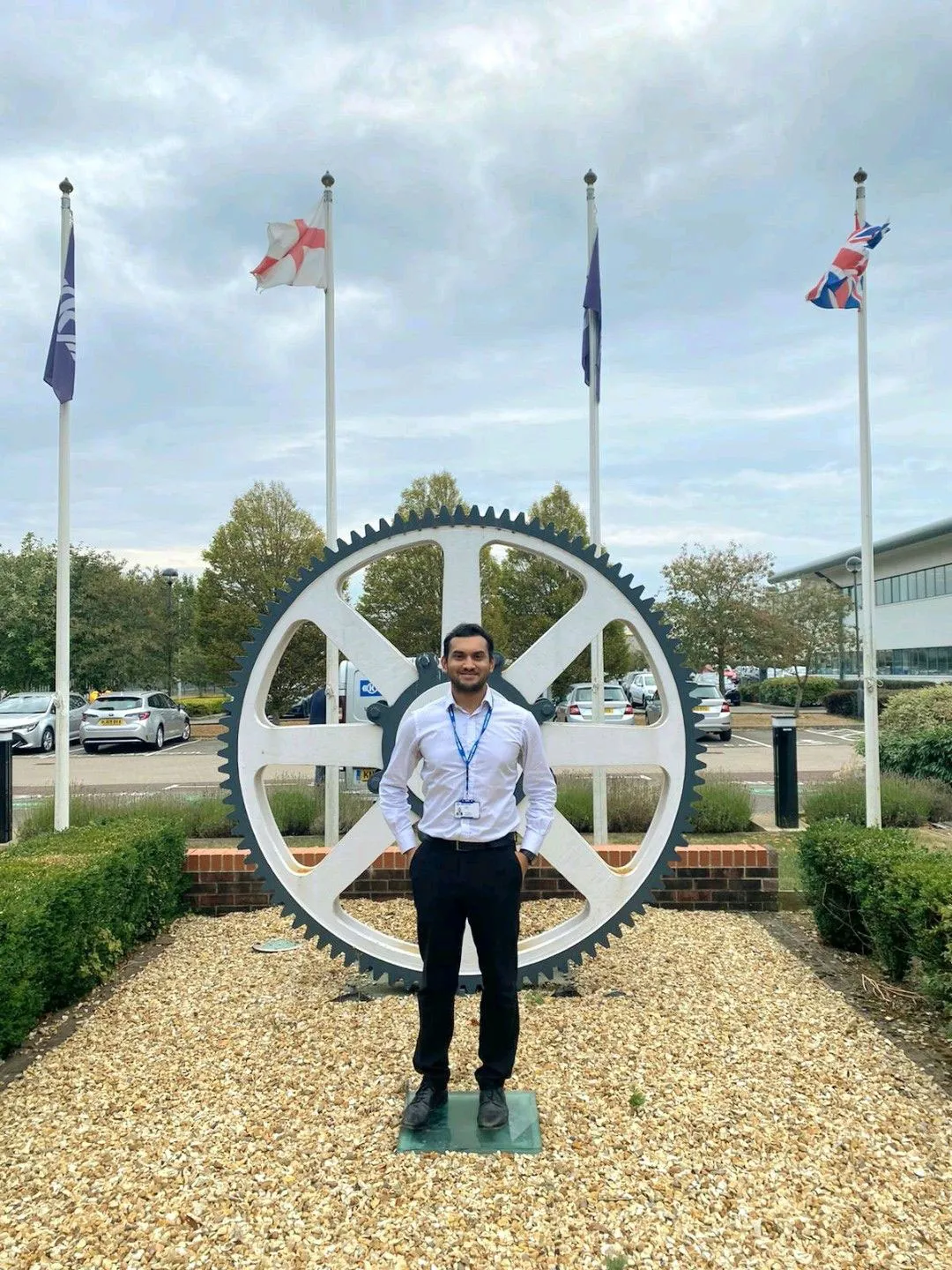The importance of transferable skills for a successful engineering career
Khaled Ahmed is an IET Associate member and a Data Science Engineer for IET Partner Knorr-Bremse Rail Systems (UK). Below, he shares his engineering journey so far, highlighting the benefits of seeking out work experience and developing soft skills.
What inspired you to become an engineer?
My motivation to become an engineer came after enrolling for an IET-accredited computing engineering degree at London South Bank University. This is when I realised that an engineering career is not just about fixing stuff; it is more about innovation and enterprise, group initiative, and building effective communication strategies to become a good leader in any field regardless. This realisation inspired me to pursue a career in engineering.
Can you describe your career in engineering so far?
My engineering career is quite adventurous. Most of the engineering work and projects I am part of on a daily basis involve extensive Data Engineering, Machine Learning Engineering, and Data Science, which require good planning, time management, and effective communication beyond the technical aspects of their nature.

My current role is a perfect reflection of the interpersonal skills I developed during my university degree, that I now apply on a regular basis in order to perform my tasks and communicate the results to my team, stakeholders, and the wider business.
What has been your biggest success in your career?
One of the biggest successes in my career was successfully securing a year-long placement as a data science intern with my current employer after the second year of my undergraduate degree, for which they typically select Master’s candidates.
Throughout my career so far, I have prioritised Continuous Professional Development (CPD). I explored learning resources and training opportunities outside my course materials to bridge the technical capability gaps and was hired immediately for an associate level role following my graduation.
In my current role, I now directly supervise two interns who are pursuing their master’s degrees. I assist them with support and advice to apply the skills they have learnt during their degree and placement year at the business where we work. This both refreshes my memory on various topics and plays a vital role in developing myself and others.
What has been your biggest challenge in your career?
I came to the UK as an international student in 2019. I had many gaps in regards to the working culture, language limitations, communication, presentation, and so on.
To become employable here meant I had to bridge all those gaps at the same time as my studies, which was quite challenging. To overcome that, apart from university group projects and tasks, I worked in many roles that are not directly related to my area of study, but which gave me highly transferrable interpersonal skills, such as communication, teamwork, management and so on.
Are there any exciting projects you are currently working on?
I am part of the analytical team responsible for analysing data for the UK’s first-ever digital freight service, known as iWagon, a joined-up approach by VTG and Knorr-Bremse Rail Systems (UK) Ltd. My work involves predictive modelling of wagon activities based on data collected from devices and sensors installed on the wagons.
Additionally, I focus on geospatial analysis, creating interactive plots and maps that showcase the hotspots of various wagon activities such as wheel slide, wheel flat, locked axle, etc. This project is a matter of pride for me, being part of the UK’s revolutionary digital freight initiative.
Do you have any advice for those looking for their first role in engineering and technology?
My main advice would be to invest your time with passion and dedication if you want to pursue a career in engineering. It may not be rewarding immediately, but if you stick to it and gain relevant experience from internships, placements, and work experience, even if only for a short term, you will eventually find yourself in the position you deserve.
Also, do not shy away from any work experience outside your area of studies, as it might help you build soft skills that are transferable and fundamental for graduate and entry-level roles, and, most importantly, help you become self-reliant.
Overall, invest your time and efforts in personal and professional development, which is vital for a career in any field.
How has the IET helped you in your career?
I enjoyed my IET-accredited engineering degree at London South Bank University. It was structured based on the criteria and standards set by the IET. A mixture of various assessment methods, modules with enterprise, design, group projects, and innovation, along with the technical modules, were the core focus of the degree. This kind of preparation helped me become job-ready both for my placement and postgraduate career.
I enjoy the E+T magazine sent to me by the IET, which is interesting with all the latest updates on everything happening around Engineering and Technology all over the world, especially in the UK and Europe.
What does the future look like and what are your goals?
The future is enriched with Artificial Intelligence, Machine Learning, and Data Analytics. Engineering these cutting-edge areas will become more challenging and vital.
My main goal is to keep up with my continuous professional development in these areas to grow professionally and help the business I am working for achieve their digitisation goals. This will make the Rail Industry in the UK more agile, scalable, predictable, and, most importantly, profound with advanced and easily interpretable analytics for both passengers and customers.
Is there anything else you’d like to share?
I would like to express my gratitude to the IET for establishing an industry-standard course curriculum for my degree, which helped me develop many soft skills and allowed me to participate in real-life design projects. These projects made a difference in the lives of people and some communities, which would have been impossible with only the technical module.
Thanks for allowing me to make a real impact through engineering a better world and society.
